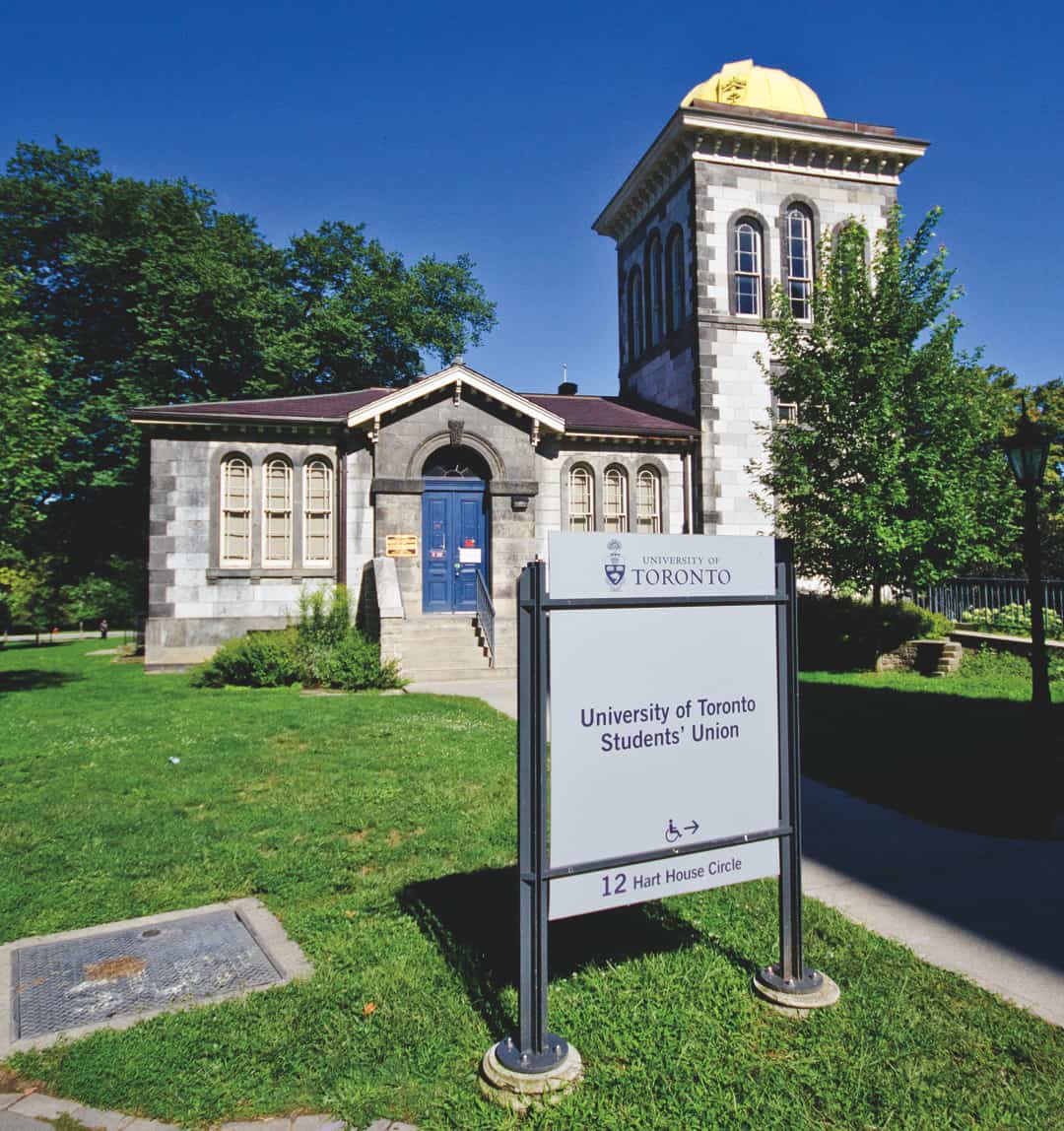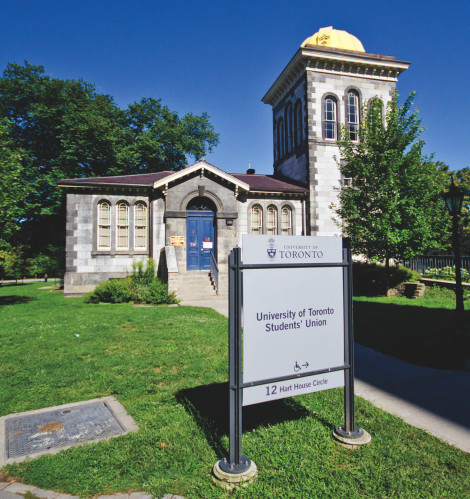STUDENT STRIKE IN ONTARIO?
With protests in Quebec expected to begin again in earnest this September when students return to campus, local unions have been working hard to import the strike movement to Ontario. Over the summer, strike leaders from Quebec were invited by the Canadian Federation of Students-Ontario (CFS-O) — a lobbying and advocacy group to which U of T’s student union belongs — to embark on a nine-stop tour of campuses in Ottawa, Kingston, Hamilton, Niagara, Windsor, London, Guelph, Toronto and Peterborough. But it remains unclear whether there is any appetite for a strike here in Ontario, which unlike Quebec, does not have a history of student strikes.
UTSU ELECTIONS
U of T’s student union holds elections each spring, which are often marked by controversy and low voter turnout. Pro-CFS candidates running polished campaigns have consistently triumphed at the ballot box, frustrating opponents who want the student union to be more independent of the CFS, focusing less on advocacy and more on services for U of T students.
This desire for change, coupled with complaints about unfair election rules (candidates can be punished for the actions of their supporters or penalized for participating in unsanctioned debates), has led to intensified opposition towards the UTSU that is especially concentrated at a handful of colleges. Look for opposition to begin to solidify in December or January of this year, although the campaign season will not begin in earnest until late February.
A NEW TUITION FRAMEWORK
The provincial Ministry of Training, Colleges, and Universities has been promising a new tuition framework for several years, but the announcement of any details has been continuously deferred. Observers expect that the plan will finally come to light this year, most likely in the late fall. The framework helps to determine the university’s price of tuition by laying out how much the provincial government will give the university per student: the more money the province provides, the less it will cost students and their parents.
HOUSING CRUNCH
As the number of undergraduates on the St. George campus continues to swell, the university is struggling to make good on its promise to provide housing to all who ask for it. When college residence rooms proved insufficient to handle the double cohort in 2003, the university was forced to put up students in a hotel on Dundas. Shortly after, the university bought the hotel building and converted it into what is now known as Chestnut Residence.
Today, Chestnut residence houses the overflow from college residences, and the university has sought further development along its southern border. Late last year, the administration inked an agreement with developer Knightstone Capital Management to convert two adjacent plots of land on College Street into a privately-operated residence — the first of its kind in Canada. But Knightstone has bungled community consultations, and the process of getting the residence tower approved at City Hall has proven arduous. A last-ditch attempt to approve the zoning amendments necessary to proceed with the project will go before the Ontario Municipal Board in the fall.
PRESIDENTIAL SEARCH
December 2013 will mark the end of David Naylor’s term as president of the University of Toronto, and the search for his replacement gets underway this fall. A presidential search committee has been struck to advise the university’s highest body, the Governing Council, on Naylor’s replacement. The search committee — which includes three student representatives — will begin by soliciting opinions from students, staff, and faculty, before interviewing approximately 15 high-profile candidates for the position.



